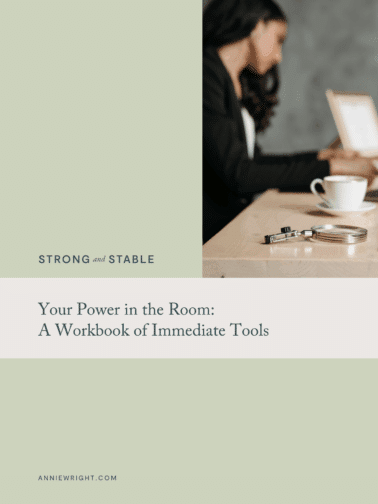This weekend marks the 16-year anniversary of me making a radical structural change in my life.
It was the weekend when, at age 25, I drafted the email to give notice at my healthcare consulting job in Washington, DC, and the weekend I began the process of getting myself into the Workscholar program at Esalen and leaving my stable, steady but soul-squashing life on Capitol Hill for a completely unknown next chapter (which turned into nearly four years of living and working at Esalen on the cliffs of Big Sur healing and recovering).
It was the weekend I made big, bold actions on the outer plane of my life to begin my relational trauma recovery journey on the inner plane.
(Though, let’s be real, I didn’t know to call it that at the time; I was simply, somewhat desperately moving towards something – anything! – that felt better than the life I was living at the time.)
As this 16-year anniversary rolled around, I was reflecting on my 25-year-old self – her boldness, her desperation, her magical thinking, her moxie – and wondering what I would tell her with the perspective and lived experience I have at age 41.
So today’s essay is a list of 16 things I wish I’d known about relational trauma recovery at age 25.
It’s the essay I wish my 25-year-old self would have been able to find online to help calibrate her expectations, supply some hope, and provide a bit of a roadmap for the massive internal and external journey she was about to embark on.
I truly hope it resonates with you no matter where you find yourself on your own relational trauma recovery journey.
16 Things About Relational Trauma Recovery I Wish I’d Known 16 Years Ago
1. You’re not broken.
All that’s going on for you is a constellation of symptoms related to what happened to you in the past. Your symptoms tell the story of hard things that happened to you. That’s all. You’re not broken. You’re not “crazy.” You are responding appropriately to the crappy circumstances you lived through, even if you can’t consciously remember them all.
2. You DID actually experience childhood trauma.
It just doesn’t look like what the media or society (at that time) says “counts” as childhood trauma. But it IS trauma. It is relational trauma. Trauma is a subjective experience, and being raised by mood- and personality-disordered parents can contribute to this. Your pain is legitimate, and the impacts of your past are profound. Don’t let yourself or others dismiss or diminish your reality.
3. It is entirely possible to be high-functioning and still have unresolved relational trauma symptoms at play.
The two things are not mutually exclusive. And sometimes, being so “high-functioning” with those Ivy League degrees and good job prospects cloaks and disguises the very real need to seek out high-quality mental healthcare. Don’t fool yourself by thinking that you don’t need help just because, on paper, things look good. And do the work sooner than later before the cumulative responsibilities of the 30s and 40s reveal the cracks in the proverbial foundations of your psyche even more.
What's Running Your Life?
The invisible patterns you can’t outwork…
Your LinkedIn profile tells one story. Your 3 AM thoughts tell another. If vacation makes you anxious, if praise feels hollow, if you’re planning your next move before finishing the current one—you’re not alone. And you’re *not* broken.
This quiz reveals the invisible patterns from childhood that keep you running. Why enough is never enough. Why success doesn’t equal satisfaction. Why rest feels like risk.
Five minutes to understand what’s really underneath that exhausting, constant drive.
4. Honey. Get yourself into trauma therapy.
Not “coaching.” Not “personal growth circles with a facilitator.” And not even just “regular talk therapy.” Actual trauma therapy with clinical intake paperwork and confidentiality agreements with a licensed mental health clinician overseen by a regulatory board and who is additionally trained in evidence-based trauma treatment modalities like EMDR. You will save thousands of hours and tens of thousands of dollars and also reduce the risk of re-traumatizing yourself.
5. I know you don’t want to hear this, but it’s going to take time.
More time than you think or would like. But if you think about it, that makes sense. It took a long time for all these thoughts, behaviors, and ways of being in the world to develop. It will take time to undo them. Have patience as much as you can while you continue to feel sad about your childhood, and move forward as best you can.
6. You don’t have to be fully healed to start living your life.
You can make movement towards a career path that feels good even while you’re healing. And you can begin dating and even thinking about/raising kids while you’re still grieving your past and working through your big feelings. Indeed, the things you want from life are some of the very things that can accelerate your healing and teach you your biggest lessons. Please understand: you don’t have to defer living your life until you’re “fully healed” to pursue them.
7. Also, there is no “fully healed.” That is a myth.
On a relational trauma recovery journey, there are progress markers like skills developed, capacities strengthened, and other biopsychosocial achievements, but there is no “fully healed.” No penultimate destination of what being healed from your relational trauma history looks like. There’s just constant progression from where you started based on what you think progress is.
8. Life is easier as a hermit.
But it’s way less fulfilling. Strengthening your capacity to tolerate relationships – the real, closely connected kind with conflict, vulnerability, rupture and repair, and deep intimacy – is what makes life worthwhile. But of course, this feels hard to understand when you’ve spent your whole life isolating because relationships have felt so painful. Practicing being in relationship with safe, trusted others to begin developing this capacity (and it totally counts to start practicing with a therapist if there’s no one in your “real life” who feels safe.)
9. Your financial healing and empowerment is important.
It will, in tandem with your psychological healing and empowerment, be just as important for your relational trauma recovery journey. Make learning about, stewarding, and improving your financial life as much a priority as anything else. A psychologically empowered woman is powerful. A psychologically empowered woman with assets and resources who can, for example, retain the best attorneys when abusers want to make trouble in her life is even more powerful.
10. There is no “forgetting or getting over” your past.
There is only grieving and integrating the reality. This journey isn’t an “Eternal Sunshine of a Spotless Mind” scenario. You can’t change what happened, and you can’t forget it. But you can construct a new narrative and make meaning of your past as you move along in your relational trauma recovery work.
11. Few things are more powerful than feeling less alone in your childhood trauma and your recovery from it.
Seek out circles and places where it feels safe to share. Your share may invite others to do the same, and the relief that comes from feeling not alone in your story, in your circumstances, can be another powerful healing accelerant.
12. It IS possible to come from an egregious childhood trauma history and still have a big, beautiful life as an adult.
One filled with love, fulfilling relationships, meaningful work, financial success, and joy from hobbies, adventures, and more. You are not doomed to a lesser life because of where you started.
13. Your relational trauma healing may have to include elective or forced temporary or permanent estrangement from your mentally ill or dysfunctional family members.
But this can change later when and if you feel ready to re-engage (assuming they’re open to this). It’s just hard to heal the wound when your hand is still on the hot stove…
14. You need to understand that you’re starting five miles behind the starting line of your peers who don’t come from childhood trauma backgrounds.
The playing field is not level. Is it possible to ever “catch up?” Possibly, depending on what that looks like for you. But is it fair or helpful for you to ever compare yourself to them, given the differences in where you started out? Hell no. Stop doing that to lessen the pain you’re heaping onto yourself in an already painful situation.
15. Learning and re-learning the skills of good, functional, “mundane” adulting is important.
Doing those actions day in, day out, year after year will have a cumulative impact on your relational trauma journey in tandem with the deep psychological work you do. Indeed, the most you process the trauma of your past and form new, more healthy, adaptive beliefs and behaviors, all those things you always struggled with – taking good care of your body and health, tending to your logistical safety in the world, paying professionals for support, and making reasonable plans for the future – it will all get easier. And it will all add up. And one day, you’ll be so proud of how being a “regular responsible adult” feels.
16. Despite the fact that you have spent your whole life feeling “other” and unwanted, you will not always feel this way.
In fact, you will find your people, create a second chance family-of-choice, and speaking and telling your story will attract amazing relationships into your life (not to mention create your entire career path). Feeling other is painful. Feeling behind and on the sidelines of life is painful. But often, it’s the Black Sheep and the Late Bloomers that go on to have the most extraordinary stories of all. Look around you for models to take inspiration from until your own life becomes the model you had so dearly wished to see.
Wrapping up.
These are 16 things I would have told my 25-year-old self 16 years ago, insights gleaned from being 16 years ahead on the relational trauma recovery journey with a clinical license and expertise in relational trauma recovery and a heck of a lot more lived life experience.
I truly hope that even one thing I shared in this essay felt helpful to you and supportive no matter where you personally are on your own relational trauma recovery journey.
And now I’d love to hear from you in the comments below:
What would you tell the you of 16 years ago about your own relational trauma recovery journey?
If you feel so inclined, please leave a message in the comments. This blog, this little corner of the internet, receives about 30,000 visitors each month, and our blog comments have become a kind of community where folks with similar paths and journeys find each other, learn from each other, and take hope and inspiration from each other’s shares. You never know who you’ll help when you write.
Here’s to healing relational trauma and creating thriving lives on solid foundations.
Warmly,
Annie




